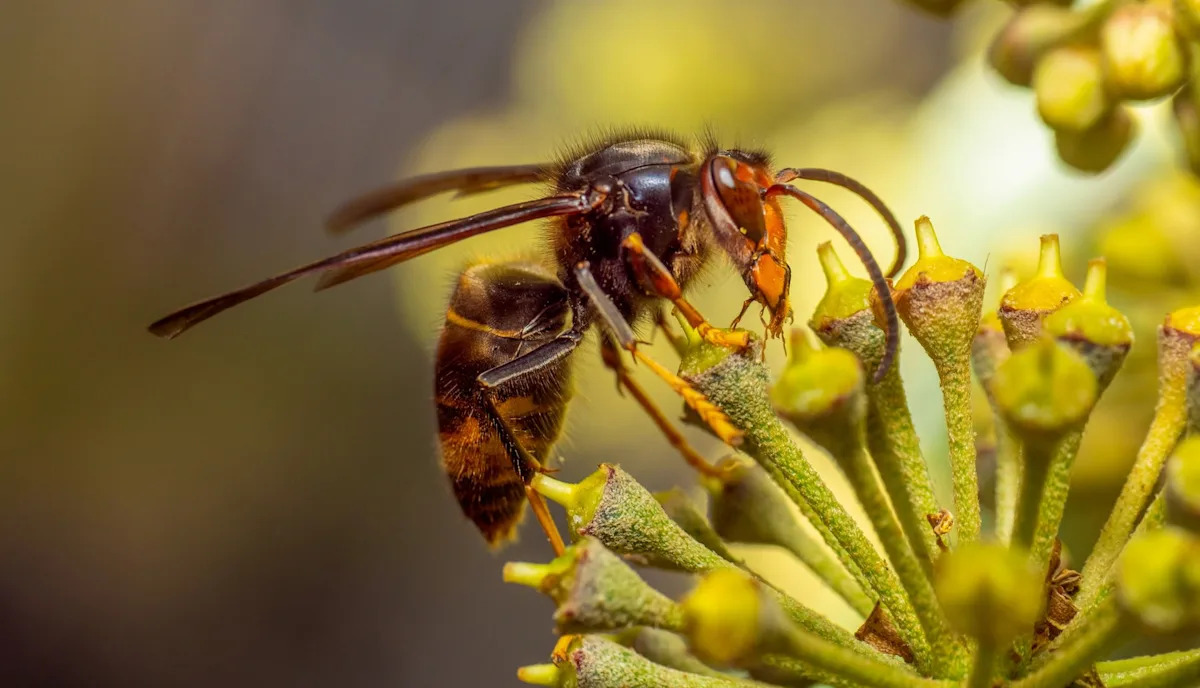Yahoo is using AI to generate takeaways from this article. This means the info may not always match what’s in the article. Reporting mistakes helps us improve the experience.Generate Key Takeaways
What could be the key to stopping a dangerous invasive hornet species? Their buzz.
The University of Southampton has made a remarkable discovery that could be the key to fighting invasive Asian hornets in the United Kingdom.
In a breakthrough with major implications for invasive species control, researchers found that Asian hornets emit a distinct sound signature with a frequency of 125 hertz at around 51 decibels.
Why is this important? Researchers say they will now be able to detect nests that hold these invasive insects based on the sounds they hear. This will make the process of detecting and removing the hornets much quicker.
“It was great news to discover that the frequency is unique for each species, so they are distinguishable,” said Sophie Gray, the acoustic engineering graduate who led the research.
The ability to distinguish Asian hornets from European hornets and honeybees is crucial. Asian hornets are predators that have devastated the honeybee population. Just one hornet can kill up to 50 bees per day by catching the bees midflight and feeding their thoraxes to their offspring.
Native hornets can also be outcompeted by Asian hornets, which is a threat to biodiversity.
Their presence has soared in the U.K., from 57 sightings in 2023 to more than 73 already this year along with 28 confirmed nests. These numbers underscore the urgent need for better detection and removal strategies.
Breakthroughs such as this one are an example of how humans can offer support to local animals in the name of creating a better future. Similar efforts to fight invasive animals and plant species are actively happening around the globe.
In many cases, scientists have invented ways to use one invasive species to combat another. In other instances, officials have encouraged the hunting and consumption of invasive predators to reduce their populations. You can also play a meaningful conservation role by taking local action to fight invasive species and work toward a sustainable future.
Join our free newsletter for good news and useful tips, and don’t miss this cool list of easy ways to help yourself while helping the planet.

